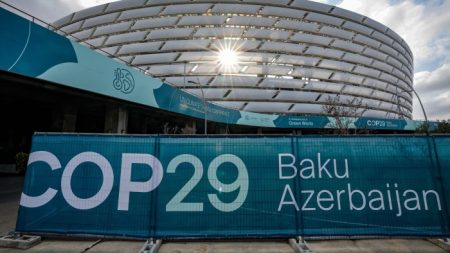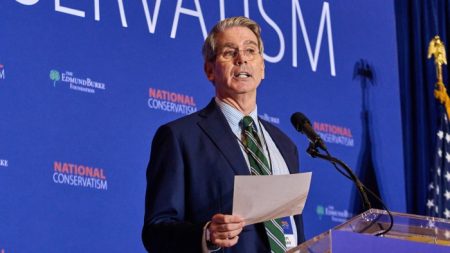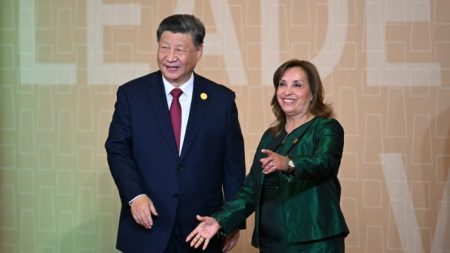Unlock the Editor’s Digest for free
Roula Khalaf, Editor of the FT, selects her favourite stories in this weekly newsletter.
Eurozone inflation fell sharply to a three-year low of 2.2 per cent in August, bolstering expectations that the European Central Bank will reduce interest rates next month.
Friday’s preliminary figure was in line with a forecast of 2.2 per cent in a Reuters poll and below last month’s rate of 2.6 per cent.
“The inflation environment is slowly getting more benign,” said Bert Colijn, Eurozone economist at ING, referring to the progress in bringing the headline rate of inflation close to the ECB’s 2 per cent target. “The ECB has arrived on a long home straight.”
The data from Eurostat came after Germany and Spain reported sharper than expected reductions in August in figures this week.
France also reported a fall in inflation to 2.2 per cent earlier on Friday — but that figure was higher than expected, which some economists linked to price pressures due to the Paris Olympics.
Markets are betting on a quarter-point reduction in the ECB’s benchmark interest rate to 3.5 per cent at its September 12 meeting, as inflation nears the bank’s 2 per cent target.
The ECB already cut rates by a quarter point in June, while the Bank of England did so this month. Traders in swaps markets are pricing in two or three more quarter-point Eurozone rate cuts this year.
Despite the fall in energy prices in Friday’s figures, an uptick in Eurozone services inflation to 4.2 per cent may add to caution among rate-setters, given wage growth in Germany and elsewhere.
Some economists largely attributed the rise to factors in France, as the Olympics drove up prices for accommodation and transport. That may lead policymakers to treat the July services figure as a one-off.
“We doubt that August’s unexpected increase in services inflation will stop the ECB from cutting interest rates at its next meeting in September,” said Jack Allen-Reynolds at Capital Economics.
After Friday’s figures were released, the yield on German two-year Bunds — which move inversely to prices and reflect Eurozone interest rate expectations — was down 0.01 percentage points at 2.35 per cent. The euro was unchanged on the day at $1.1076.
The US Federal Reserve is also expected to cut its benchmark rate for the first time in more than four years in September.
ECB chief economist Philip Lane signalled this month that further rate reductions were likely in Europe. He warned that keeping interest rates “too high for too long would deliver chronically below-target inflation over the medium term”, while warning that a return to the ECB’s 2 per cent target was not yet certain.
Isabel Schnabel, an ECB executive board member, indicated on Friday she was also open to cuts, but said the central bank “should proceed gradually and cautiously” on lowering rates.
Separate figures published on Friday showed that the Eurozone labour market remained robust, with a marginal fall in the seasonally adjusted unemployment rate to 6.4 per cent in July from 6.5 per cent the month before.
Read the full article here












